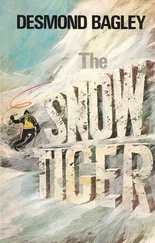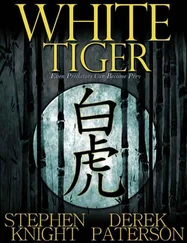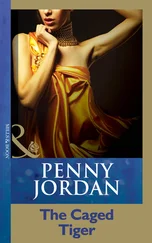Your lucky day, Dharam.
Can you hear that, Mr. Jiabao? I'll turn it up for you.
The health minister today announced a plan to eliminate malaria in Bangalore by the end of the year. He has instructed all city officials to work without holiday until malaria is a thing of the past. Forty-five million rupees will be allocated to malaria eradication.
In other news, the chief minister of the state today announced a plan to eliminate malnutrition in Bangalore in six months. He declared that there would be not one hungry child in the city by the end of the year. All officials are to work single-mindedly toward this goal, he declared. Five hundred million rupees will be allocated for malnutrition eradication.
In other news, the finance minister declared that this year's budget will include special incentives to turn our villages into high-technology paradises…
This is the kind of news they feed us on All India Radio, night after night: and tomorrow at dawn it'll be in the papers too. People just swallow this crap. Night after night, morning after morning. Amazing, isn't it?
But enough of the radio. It's turned off. Now let me look up to my chandelier for inspiration.
Wen!
Old friend!
Tonight we bring this glorious tale to a conclusion. As I was doing my yoga this morning-that's right, I wake up at eleven in the morning every day and go straight into an hour of yoga-I began reflecting on the progress of my story, and realized that I'm almost done. All that remains to be told is how I changed from a hunted criminal into a solid pillar of Bangalorean society.
Incidentally, sir, while we're on the topic of yoga-may I just say that an hour of deep breathing, yoga, and meditation in the morning constitutes the perfect start to the entrepreneur's day. How I would handle the stresses of this fucking business without yoga, I have no idea. Make yoga a must in all Chinese schools-that's my suggestion.
But back to the story, now.
First, I want to explain one thing about a fugitive's life. Being a man on the run isn't all about fear-a fugitive is entitled to his share of fun too.
That evening as I was sweeping up the pieces of the Johnnie Walker bottle in the parking lot, I worked out a plan for how I would get to Bangalore. It wouldn't be on a direct train-no. Someone might see me, and then the police would know where I had gone. Instead, I would transfer myself from train to train, zigzagging my way down to Bangalore.
Although my schedule was shot to pieces when I went to get Dharam-he was sleeping in the net, and I woke him up and said we were going on a holiday to the South, and dragged him out-and it was hard to keep my red bag in one hand and Dharam in the other hand (for the train station is a dangerous place for a little boy, you know-lots of shady characters around), still I began to move in this zigzag way south from Delhi.
On the third day of traveling like this, red bag in hand, I was at Hyderabad, waiting in line at the station tea shop to buy a cup of tea before my train left. (Dharam was guarding the seat in the compartment.) There was a gecko just above the tea shop, and I was looking at it with concern, hoping it would move before it was my turn to get tea.
The gecko turned to the left-it ran over a large piece of paper posted on the wall-it stood still for a moment, like that, then darted to the side.
That large piece of paper on the wall was a police poster- my police poster. It had already arrived here. I looked at it with a smile of pride.
A smile that lasted just a second. For some bizarre reason-you'll see how sloppily things get done in India -my poster had been stapled to another poster, of two guys from Kashmir -two terrorists wanted for bombing something or the other.
You'd almost think, looking at the posters, that I was a terrorist too. How annoying.
I realized that I was being watched. A fellow with his hands behind his back was looking at the poster, and at me, most intently. I began to tremble. I edged away from the poster, but I was too late. The moment he saw me leaving, he ran up to me, caught my wrist, and stared at my face.
Then he said, "What's it say? That poster you're reading?"
"Read it for yourself."
"Can't."
Now I understood why he had come running. It was the desperation of an illiterate man to get the attention of the literate man. From his accent I knew he was from the Darkness too.
"It's the wanted-men list for this week," I said. "Those two are terrorists. From Kashmir."
"What did they do?"
"They blew up a school. They killed eight children."
"And this fellow? The one with the mustache?" He tapped my photo with a knuckle of his right hand.
"He's the guy who caught them."
"How did he do that?"
To create the illusion I was reading the printing on the wall, I squinted at the two posters, and moved my lips.
"This fellow was a driver. Says here he was in his car, and these two terrorist guys came up to him."
"Then?"
"Says he pretended he didn't know they were terrorists, and took them for a ride around Delhi in his car. Then he stopped the car in a dark spot, and smashed a bottle and cut their necks with it." I slashed two necks with my thumb.
"What kind of bottle?"
"An English liquor bottle. They tend to be pretty solid."
"I know," he said. "I used to go to the English liquor shop for my master every Friday. He liked Smir-fone."
"Smir-noff," I said, but he wasn't listening. He was peering again at the photo in the poster.
Suddenly he put his hand on my shoulder.
"You know who this fellow in the poster looks like?"
"Who?" I asked.
He grinned.
"Me."
I looked at his face, and I looked at the photo.
"It's true," I said, slapping him on the back.
I told you: it could be the face of half the men in India.
And then, because I felt sorry for that poor illiterate, thinking he had just endured what my father must have endured at so many railway stations-being mocked and hoodwinked by strangers-I bought him a cup of tea before going back to the train.
* * *
Sir:
I am not a politician or a parliamentarian. Not one of those extraordinary men who can kill and move on, as if nothing had happened. It took me four weeks in Bangalore to calm my nerves.
For those four weeks I did the same thing again and again. I left the hotel-a small, seedy place near the train station that I had taken after leaving a deposit of five hundred rupees-every morning at eight and walked around with a bag full of cash in my hands for four hours (I dared not leave it in the hotel room) before returning for lunch.
Dharam and I ate together. What he did to keep himself amused in the mornings I don't know, but he was in good spirits. This was the first holiday he had had in his whole life. His smiles cheered me up.
Lunch was four rupees a plate. The food is good value in the south. It is strange food, though, vegetables cut up and served in watery curries. Then I went up to my room and slept. At four o'clock I came down and ordered a pack of Parle Milk biscuits and a tea, because I did not know yet how to drink the coffee.
I was eager to try coffee. You see, poor people in the north of this country drink tea, and poor people in the south drink coffee. Who decided that things should be like this, I don't know, but it's like this. So this was the first time I was smelling coffee on a daily basis. I was dying to try it out. But before you could drink it, you had to know how to drink it. There was an etiquette, a routine, associated with it that fascinated me. It was served in a cup set into a tumbler, and then it had to be poured in certain quantities and sipped at a certain speed from the tumbler. How the pouring was to be done, how the sipping was to be done, I did not know. For a while I only watched.
Читать дальше












